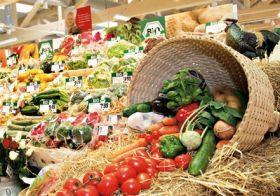
Increasing the availability of lower-grade fresh fruit and vegetables may not be the answer to increasing its consumption.
That was one of many relevatory findings in research recently carried out by a team from Cranfield University.
The Bedfordshire-based researchers also identified that the view from fresh produce industry was that the 5 A DAY message has had little to no impact alone on fruit and vegetable demand.
Others results, through structured interviews, revealed that some suppliers feared that promotions are being overused in the current climate.
While no consumer research was carried out as part of this work, some suppliers believed that promotions - often up to 50 - 80 per cent for some categories - are destroying the price structure of the whole fresh produce category and actually making promotions themselves less effective.
It was also believed by those surveyed that multibuy promotions and changing pack sizes across a range of categories may be confusing consumers and that consumers may be suffering from ‘promotion fatigue’.
Another key finding from the purchasing data accessed through the research was that employment status has had a significant effect on some fruit and vegetable purchasing: namely apples, potatoes and strawberries, which the study looked at.
Those working fewer than eight hours a day, unemployed or in full-time education purchased significantly lower amounts of standard and value lines of apples, potatoes and strawberries compared to those in full-time employment or retired groups.
However, the purchasing of some lower-grade fruit tended to not be as influenced by socio-economic grouping as expected, suggesting that the presumed link between increasing the availability of specific lower-grade fresh produce and purchasing behaviour for certain vulnerable groups may not be fully understood.
Professor Leon Terry, lead researcher, said: “The results of this research have provided some interesting food for thought. Supplier perception is that it is unclear whether consumers fully understand promotions and indeed the true price of different fruit and vegetable lines as they have little to properly benchmark prices against.
'This potential problem represents a real risk and one that needs further consideration. Critically, the report identified that there is an evidence gap in our understanding about the potential impact of consumer attitudes to certain fresh produce types and that the demand drivers are likely to be produce specific.'



